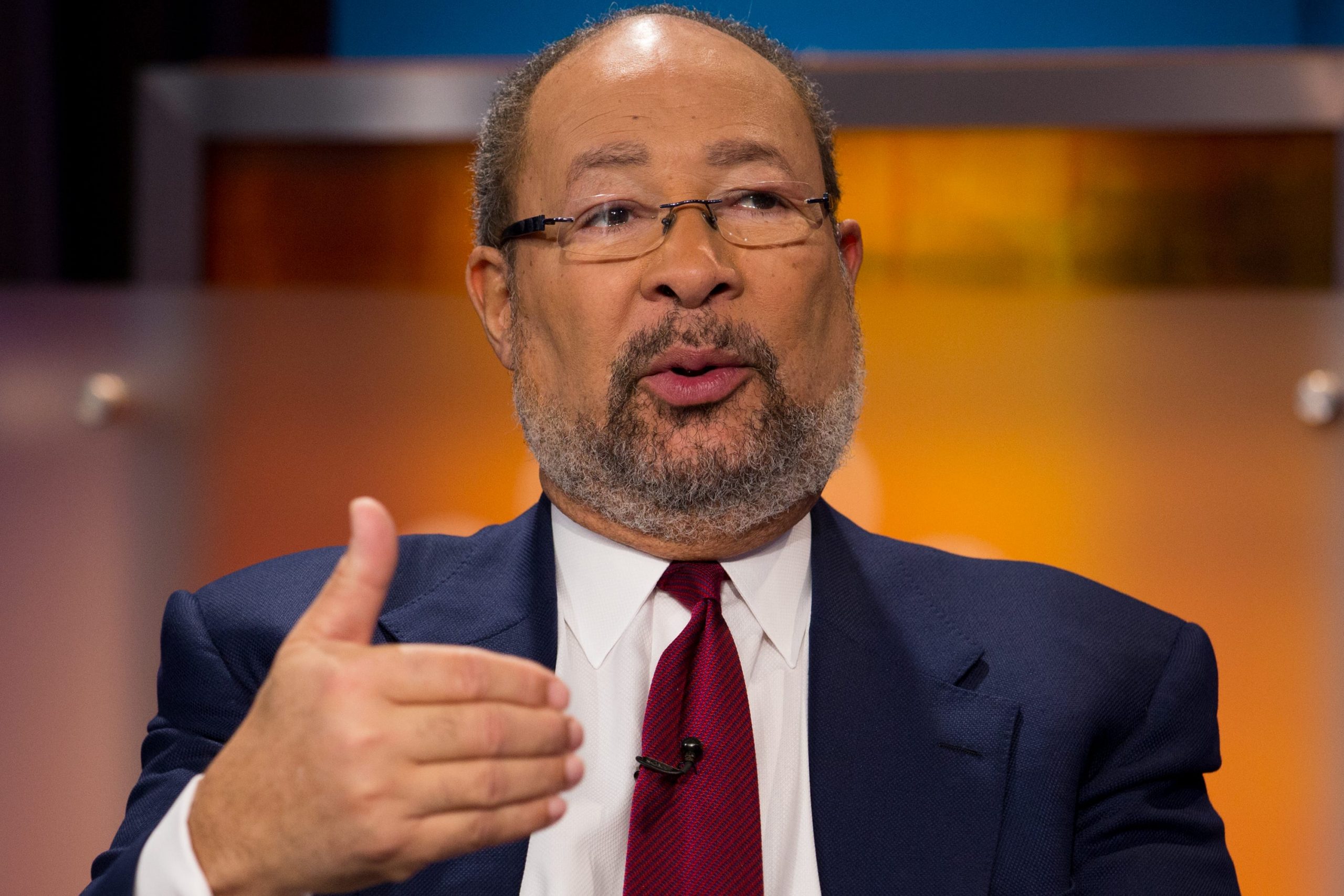
David A. Grogan/CNBC/NBCU Photo Bank/NBCUniversal via Getty Images
- Dick Parsons, former CEO of Time Warner, said Georgia's new voting law was designed to suppress Black voters.
- Parsons is one of 72 Black corporate leaders calling on US firms to publicly oppose the law.
- "There is simply no excuse for what the Georgia legislature has done," Parsons told CNN in an interview Tuesday.
- See more stories on Insider's business page.
Dick Parsons, the former CEO of Time Warner and CBS, on Tuesday described the new voting law in Georgia as "bone-headed," as well as a "bald-faced attempt" to suppress Black voters in the state.
Parsons, one of the first Black CEOs of a Fortune 500 company, is one of 72 Black business leaders who have signed a letter urging American companies to publicly oppose the new law.
The new voting law, known formally as SB 202 or the Election Integrity Act of 2021, adopts stricter voter ID laws for absentee ballots, and says volunteers shouldn't hand out water and snacks to voters waiting in line, to stop "ballot selfies."
"There is simply no excuse for what the Georgia legislature has done," Parsons told CNN in an interview on Tuesday. This was his first time speaking about the new voting law.
"What does feeding somebody or giving somebody a glass of water have to do with fraud?" Parsons said. "It's just a bald-faced attempt to prevent or suppress the number of Black voters who show up to vote in Georgia. We felt as a corporate community that we needed to call the legislature out, hold them accountable."
Parsons told CNN the Georgia law was a "ruse" pretending to safeguard elections.
When asked about former President Donald Trump's apparent boycotts of big companies that have opposed the voting law, such as Coca-Cola and Delta Airlines, Parsons said: "Good luck, former President Trump."
Parsons was one of the first Black CEOs at a Fortune 500 company in the early 2000s. Other Black leaders that have signed the letter include the former American Express CEO Kenneth Chenault, Merck CEO Kenneth Frazier, and Robert F. Smith, CEO of Vista Equity Partners.
Parsons said he hoped that the opposition from CEOs would send a message to other states considering similar rules. "We're hoping that other states will see that they can't enact this kind of legislation unaccountably ... and have no consequence to pay for it," Parsons said.
Nearly every state has introduced new bills that make it more difficult to vote, according to a report by the Brennan Center for Justice at New York University, published on Thursday.
